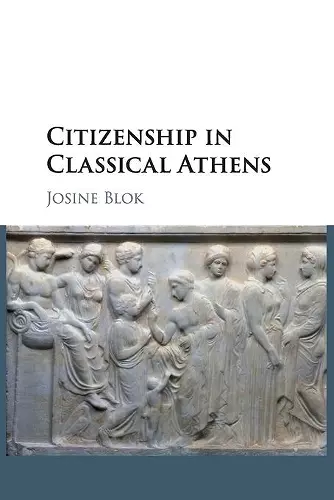Citizenship in Classical Athens
Format:Paperback
Publisher:Cambridge University Press
Published:12th Dec '19
Currently unavailable, and unfortunately no date known when it will be back
This paperback is available in another edition too:
- Hardback£92.99(9780521191456)

This book argues that citizenship in Athens was primarily a religious identity, shared by male and female citizens alike.
A highly original study arguing that Athenian citizenship was not just a political identity, but was in fact primarily a religious identity. Classical Athens saw itself as a community (polis) founded on its bond with the gods. Male and female citizens were equal heirs of this bond, in which the polis also anchored its laws.What did citizenship really mean in classical Athens? It is conventionally understood as characterised by holding political office. Since only men could do so, only they were considered to be citizens, and the community (polis) has appeared primarily as the scene of men's political actions. However, Athenian law defined citizens not by political office, but by descent. Religion was central to the polis and in this domain, women played prominent public roles. Both men and women were called 'citizens'. On a new reading of the evidence, Josine Blok argues that for the Athenians, their polis was founded on an enduring bond with the gods. Laws anchored the polis' commitments to humans and gods in this bond, transmitted over time to male and female Athenians as equal heirs. All public offices, in various ways and as befitting gender and age, served both the human community and the divine powers protecting Athens.
ISBN: 9781108702430
Dimensions: 229mm x 152mm x 17mm
Weight: 500g
348 pages